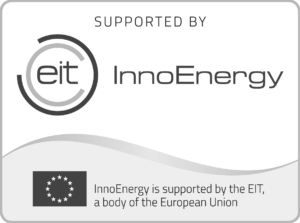01.06.2016
Cognuse: Solutions that help to recover from severe chronic diseases
A solution created by an Estonian start-up company Cognuse for treatment of patients recovering from chronic neurological and cardiovascular diseases is currently available for doctors, patients and their loved ones already from Tallinn to San Diego. Among others, John Hopkins Hospital, entitled as the best hospital in the USA, is using this programme.
Cognuse is dealing with development and distribution of solutions supporting rehabilitation and their adaptation to different devices, e.g. tablets and smart devices. “We build a software programme supporting the treatment cycle of the patients who suffer from a neurological or cardio-respiratory problem,“ says the founder and CEO of Cognuse, Andres Mellik.
The product by Cognuse is designed for patients whose disease needs a long-term support. While rehabilitation opportunities are often restricted, this programme can provide a more convenient and effective alternative.
Eligible solution for big hospitals as well as private customers
According to Mellik, the idea to conquer the US market started off in November 2013. Before that, the company was focusing on only specific cognitive rehabilitation exercises but while following the US systems and cooperating with the hospitals, they reached a broader platform via the games. As the decision to focus on the US market was deliberate and English is the primary language, the solutions can be easily localised both in technical and cultural terms.
In the USA, the main focus is on large customers. “We provide a solution for one hospital and one department. After validating their requirements successfully, we focus on connecting with the larger system, which usually is regional. At the moment we have agreements in place in two such health systems, in a few smaller clinics and networks. “In the USA there are also large statewide healthcare systems, which we will be targeting in the long-term perspective,” says Mellik.
According to Mellik, administration in Estonia is easier as in the United States of America the distances are longer and the time is spent on logistics. One of the primary concerns for a start-up company is the long sales cycles in healthcare. “While the product may be excellent, highly usable and evidence-based, both the decision-making and budget cycles present a significant challenge to quick implementation.”
Independent of the market, the cost efficiency of and need for the service is assessed via three aspects: the first is constant monitoring of the customer satisfaction – at the moment it is near the maximum – 94%.
“In the United States of America, quality improvement is very specifically associated with monetary indicators. Satisfaction of the patients and family members as well as their feedback plays an important role in the reimbursement process. Beside the direct financial reimbursement, prevention
of complications and, thirdly, overall time and cost saving is also important,” notes Mellik.
“Inter alia, with this technology, we try to expand the number of treatment options that the patient needs but which the public or private insurance is not covering. The treatment can continue after exiting the healthcare financing system, and this solution is more favourable for the patient,” he adds.
Speaking of competitors, Mellik explains that in the field of rehabilitation, companies usually concentrate on a certain area; few companies have diagnosis-based approach like Cognuse has, and even less of them at such an early stage.
Since especially in neurology area there is a principle that the earlier you start with rehabilitation, the better, the set of applications is provided and the focus lies on a process. “When there are already the clinically validated solutions, it is not reasonable for us to re-invent the wheel, which is why we have an open interface for integrating with other vendors,” he specifies.
The future brings digitization of more treatment services
The USA, the company is focusing mainly on large customers and a model targeting has not been launched yet. But in Estonia, the company has developed an interactive speech therapy platform, which includes more than a 1,000 exercises where a person with speech disorder, focusing on aphasia first, can learn to speak again, understand the speech, write and read with the assistance of a speech therapist as well as practice independently at home.
According to Mellik, it is proved that speech therapists and patients with speech disorders can actually make use of the solution. In addition, preparation of a similar model for cognitive behavioural therapy is in progress.
“In the long-term perspective, we will move towards prevention and work on several different ideas, for example, in case of the cardiovascular surgery, we help the patient to prepare for the surgery. In the USA, it is financially viable to keep the patient away from the hospital and here is where all scalable technologies come in,” says Mellik , emphasizing that Cognuse is not trying to replace the contact with a doctor or a therapist, but rather empowers them. “The strength of our service is primarily the performance and accessibility for the hospitals, doctors, patients and their families.”
Looking ahead, Andres Mellik sees the digitised treatment services changing the paradigm and breaking the myths. Use of technology is on such level, which enables to provide more services. These will play more and more significant role in Estonia and EU as well as in the USA.












